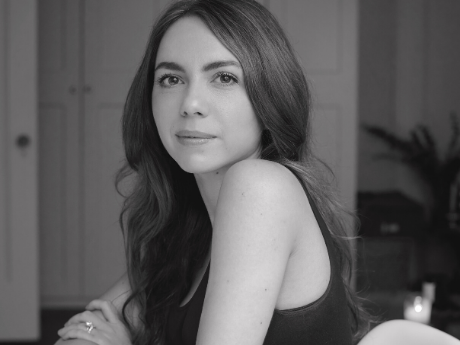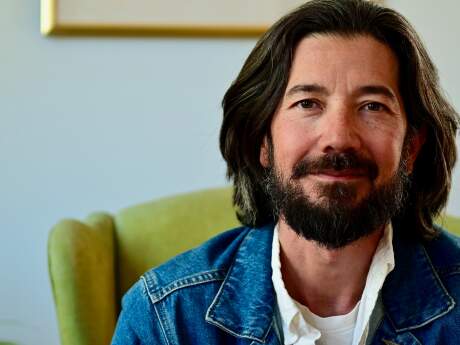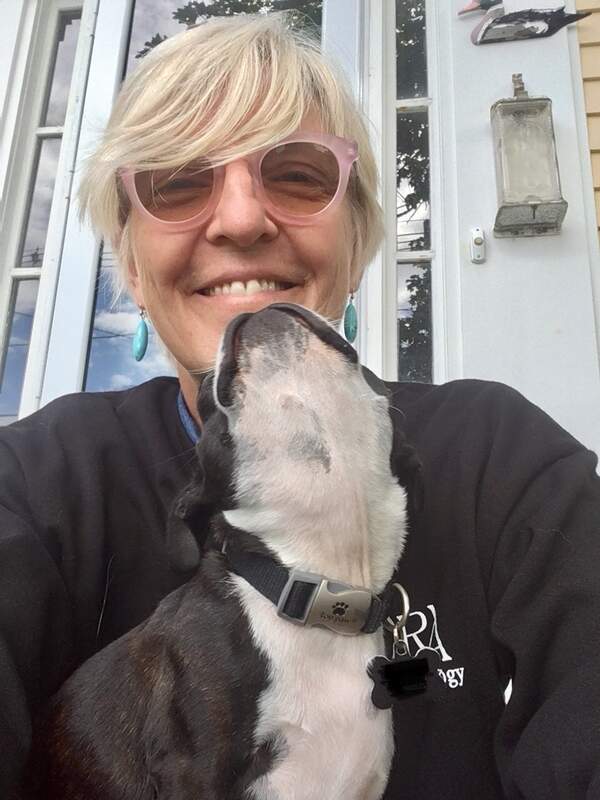Stopping By
Stopping by with Maya C. Popa

Maya C. Popa is the author of Wound is the Origin of Wonder, published by W. W. Norton in the US and Picador in the UK. Her first collection, American Faith, was published by Sarabande in 2019 and was awarded the North American Book Prize. The Poetry Reviews Editor at Publishers Weekly, she teaches at NYU and elsewhere. She holds a PhD from Goldsmiths, University of London on the role of wonder in poetry and writes a weekly newsletter, Poetry Today, on wonder, mindset, and literary craft. She answered the below questions in August 2023.
What is the last thing you read that moved you?
I just finished reading Catherine Barnett’s fourth collection, Solutions to the Problem of Bodies in Space, which is out next year from Graywolf. The book’s meditations on loneliness are extraordinary, and Barnett’s voice—honest, ruminative, clever at every turn—carries a singular charge. It was such welcome company, it made me want to write in reply somehow.
What is a poem that changed or greatly influenced your life?
Alice Oswald’s work has astonished me since college. “Swan,” for instance, is a poem “about” a recently deceased swan leaving its body, wondering aloud as it reflects on its shape from above. The poem veers (by way of the swan’s black eye) to a bride walking to church on her wedding day through the snow. Oswald is invoking a Yugoslavian oral poem about a bridal procession that gets frozen on its way to church—a poem she has never been able to trace since first reading about it in her studies of Homer. The transformation from swan to bride is accomplished by the strangest leap imaginable, and yet the leap calls no attention to itself. Oswald has a way of removing herself from her poems, so that the narrating voice is a bit disembodied in fascinating ways.
What is your first memory of poetry?
The first nine years of my education were in a French school. In first grade, I was still struggling to grasp the language and trailed rather cluelessly behind my peers. One afternoon we had a lesson on poems. The language I had a fragile handle on suddenly seemed—not familiar—but immediate and malleable. It felt like the poem I wanted to write existed already; that it needed to be written in French wasn’t an impediment. I was able to combine the words I knew—“pluie” for rain, “soeur” for sister—to imagine what it would feel like to have an element as a sibling.
How has this last year changed you, and what is something that you learned, that you will take with you into a post-pandemic world?
I’ve been reading about genetic and inherited memory and recently learned that my mother’s eggs were formed while she was still growing inside my grandmother. I’m interested and moved to learn this, that what becomes you first takes shape inside your mother while she is still growing inside your grandmother, that there’s a profound line, one scientists are actively studying, that connects these eras and people. My grandmother’s father was a prisoner of war, and both my parents grew up in a communist dictatorship.
I suppose this means my own children, one day, and their children, will have a memory of the pandemic imprinted in them on a cellular level. All of this makes me think more deliberately about the care we should show ourselves and each other as we process hardship. Unprocessed pain and terror are neither useful nor healthy. So, I’m being more thoughtful and conscious of that for myself and others.
Who or what is your greatest creative influence?
There is no question that nature is my greatest influence, even if I may not be categorized as a traditional “nature poet.” I’m always thinking about nature—the seasons, the flora and fauna, the light. Some element of the natural world is often the starting place for a poem; even those generated in or about urban settings cling to it. I spend as much time as possible in the park or outside of the city, and I love the writing of naturalists and poets who pay particular and idiosyncratic attention to nature.
If you were to choose one poem or text to inscribe in a public place right now, what would that be?
I share my love for Gerard Manley Hopkins with one of my earliest and dearest mentors, John Loughery. His favorite Hopkins poem is “Pied Beauty,” which opens, “Glory be to God for dappled things.” The poem celebrates “All things counter, original, spare, strange.” This feels like the right poem for public display.
What do you see as the role of art in public life at this moment in time?
Art has always been the container for exploring the most nuanced and least categorizable truths about the human experience. So, the role of art is vital and pushes against all that is not that—not interested in gradation, ambiguity, negative capability, as Keats calls it. It’s also the place for “the grand elementary principle of pleasure” (Wordsworth), for enjoyment, ecstasy, joy. It houses all human experience and feeling. It was always necessary and remains so now, tomorrow, always.
What do you want people to take away from your work?
I want them to feel less alone in their wrestling with the co-existence of pleasure and pain, grief and joy, gravity and transcendence. I hope they are reminded of how extraordinary, unusual, and endlessly worthy of our attention the world around us is. I hope they tune in to the psychic line between the mind and heart. And I hope they discover literary curiosities and allusions that pique their interest and lead them to other writers.
Are you working on anything right now that you can tell us about?
I am slowly working on a third collection of poems as well as on what I hope will be a book of essays on wonder and poetry. I write a weekly Substack newsletter called Poetry Today, where I share excerpts of my research into wonder on Wednesdays.
What are you hopeful for?
I am full of hope in the widest sense. It’s a choice that I make each day to look for evidence that there’s as much reason to feel hope as apprehension amidst the endless reports of calamities and struggle. I see examples of basic and extraordinary generosity, ingenuity, and kindness each day. I am especially aware of the urgency of addressing the climate crisis, but I have hope that duress can put pressure on human resourcefulness in positive ways, and that people across the ages have felt those oscillations of trust in life’s continuity and anxiety over the same. I take hope seriously. I write with and from that hope.


